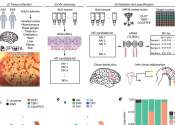Mothers (formerly the Carlton Ballroom) was a club in Birmingham, England during the late 1960s and early 1970s. Mothers opened above an old furniture store in Erdington High Street on August 9, 1968. The club, run by promoter Phil Myatt, closed its doors on 3 January 1971. Between these times, more than 400 acts performed there, many of whom went on to greater success.
Possibly the most significant of the live recordings that took place in Mothers was Pink Floyd's Ummagumma, a double-album on EMI's new label Harvest. It was released in October and featured two live sides, part recorded at Mothers on April 27, 1969 and part at Manchester College of Commerce in June 1969.
The Who performed Tommy and Traffic's world debut took place at Mothers along with fledgling rock bands like Black Sabbath playing some of their earliest gigs there.
Some of the better known rock bands to play Mothers include: Family, Fleetwood Mac, The Edgar Broughton Band, Traffic, Free, Roy Harper, Blodwyn Pig, Strawbs, Quintessence, Steppenwolf, Black Sabbath, Deep Purple, Jethro Tull, Jon Hiseman's Colosseum, Skid Row (with Gary Moore), The Nice, Tyrannosaurus Rex, The Who, Fairport Convention, King Crimson, Led Zeppelin, Soft Machine, The Chicago Transit Authority and the Bonzo Dog Doo Dah Band.
Mothers was voted number one rock venue in the world by America's Billboard magazine and John Peel, a regular DJ at the club, was quoted as saying: "People are amazed to hear that for a few years the best club in Britain was in Erdington."
Roy Harper later told Brum Beat magazine:
That was the first club outside London that meant anything at all and that's why there's been this long association [of Harper] with Birmingham. I played there about six times between 1968 and 1970. I have always enjoyed playing here.









